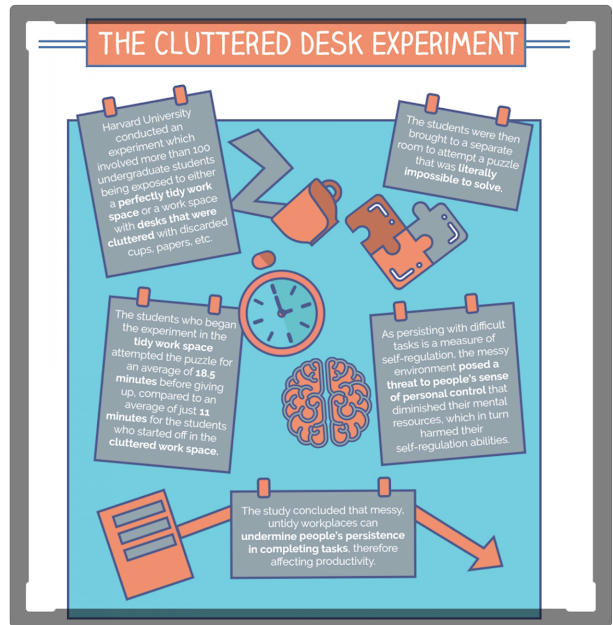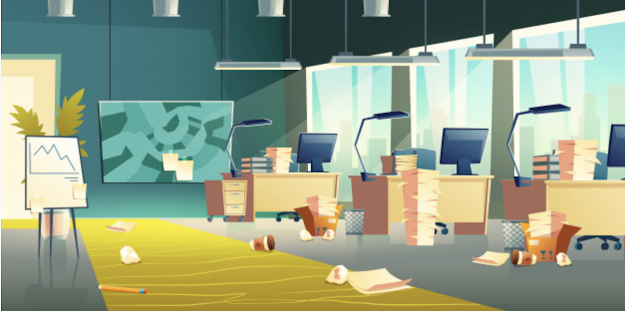The Cluttered Desk Experiment

An article by Harvard Business Review HBR , by Boyoun (Grace) Chae and Rui (Juliet) Zhu The disorganized accumulation of papers and coffee cups scattered across your desk may help you project the impression that you’re working at full throttle, but in fact it’s probably dragging you down. We’ve found that people sitting at messy desks are less efficient, less persistent, and more frustrated and weary than those at neat desks. But wait, you may say. No one who has worked in a busy office for more than a week can possibly keep a neat desk — the work comes at you too fast. Or you may say that you like your mess, that it’s as comforting as a little nest. To which we say yes, it can be challenging to keep a desk neat. And yes, a mess can be comforting, even freeing, in a sense: You don’t have to worry about things becoming disordered, because they’re already disordered. But look at the data: In one of our experiments , more than 100 undergraduates were exposed either to an unclu
